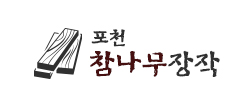Korea’s major tech firms including Samsung Electronics, Naver and SK Telecom briefed President Moon Jae-in about research and development into artificial intelligence (AI), announcing collaborative AI robot projects and the start of other new high-tech businesses.
SK Telecom unveiled its first AI chip for data centers jointly developed with its chipmaking affiliate SK hynix during an event in Ilsan, Gyeonggi.
The Sapeon X220 is Korea’s first chip for data centers powered by AI, according to the telecom company.
The chip is designed for applications that require complex math functions, machine learning and large data sets.
“Its deep learning computation speed is 6.7 kilo-frames per second, which is 1.5 times faster than that of graphics processing units [GPUs] that are being widely used by AI-service companies,” said SK Telecom in a statement, adding that it consumes 20 percent less power than GPUs.
The new chip will be used by SK Telecom’s digital assistant Nugu to improve voice recognition next year. Security affiliate ADT Caps will be using it to improve the performance of its AI-based video monitoring service.
The event jibed with the president's goal for Korea to develop an AI chip comparable with dynamic random-access memory (DRAM), a memory chip that Korean chipmakers dominate the market for.
“[The government] will grow AI chips as the next DRAM,” he said during the event, reiterating a previous government pledge to invest 1 trillion won ($904 million) in the advanced chip sector by 2029.
Naver demonstrated a robot capable of fine-tuning the degree of force it uses, following a speech by Seok Sang-ok, chief executive of Naver Labs.
Seok described the company’s cross-border initiative for AI research — dubbed Global AI R&D Belt — and vowed to share its data analytics tool for research purpose.
“To accelerate AI research, the first and foremost source is a wealth of quality data,” Seok said, “Naver will unveil Naver Cloud’s data management platform within this year to support research institutions, colleges, start-ups and public institutions.”
KT underscored its ongoing collaboration in AI research with Hyundai Heavy Industries, LG U+ and other institutions.
The team developed techniques powered by AI to curb the spread of infectious disease and boost efficiency on industrial sites.
Samsung Electronics described its AI research related to 6G, the next-generation wireless network after 5G.
Kakao reaffirmed its commitment to fully deploying AI in its products and services especially in mobility and cloud-based co-working tools.
Moon encouraged participating companies to be more active in investment and praised the role of tech companies in containing the spread of the coronavirus.
The Wednesday event was intended to commemorate the passage of a year after the president announced a set of programs to fuel the growth of AI research.
At the time, he pledged an expanded budget of 1.7 trillion won for expanding the area and regulatory reforms.
BY PARK EUN-JEE [park.eunjee@joongang.co.kr]
- 경기도 포천시 영북면 호국로 3497번길 4 | HP 010-6460-5989, 010-8334-0879
- 사업자 등록번호 : 484-90-00024 | 대표자 : 강석원
- Copyright © 2015 포천참나무장작 All rights reserved.
 오늘 : 15126
오늘 : 15126 합계 : 1425463
합계 : 1425463











